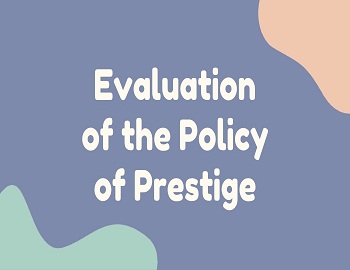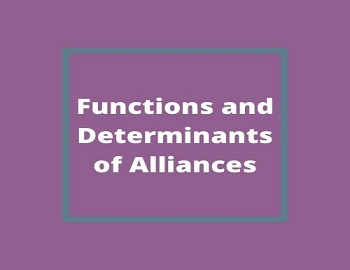Evaluation of the Policy of Prestige:
In international politics, the search for prestige is associated with the search for greatness and glory. The statesmen are always very much concerned with the prestige of their nation. Sometimes, a nation paints an exaggerated picture of its power. As such, it attempts to gain too much reputation for power that exceeds the power which the nation actually possesses. Here the policy of prestige is changed into the policy of bluff. The policy of bluff can be successful in the short run only, but in the long run, it achieves success only if it is able to postpone forever the test of actual performances.
Nations may not only mistake engaging themselves in a policy of bluff but also go to the other extreme and be satisfied with a reputation for power that is inferior to the actual power possessed. The outstanding example of this “negative policy of prestige” is the United States in the period between two world wars. At the outbreak of World War II, the United States was the biggest power and it declared its opposition to Germany and Japan. As the reputation of the United States i.e., its prestige was low so Italy and Germany declared war against it on December 10, 1941. Hitler is quoted as having said in 1934: “The American is no soldier. The inferiority and decadence of this allegedly New World are evident in its military inefficiency”. Thus the United States, due to failure in its demonstration of power invited attack. As a matter of fact, a wise foreign policy should not make any difference between prestige and actual power. As Prof. Morgenthau points out, “To demonstrate to the rest of the world the power one’s own nation possesses, revealing neither too much nor too little, is the task of a wisely conceived policy of prestige”.
To conclude our discussion on the policy of prestige, we may say that prestige is sought as an instrumental value. It is also sought sometimes, as a global value. Prestige, in fact, is very much desirable by the nations. Its desirability is beyond discussions. A country’s prestige is enhanced the more it achieves success in areas that the observers consider most important, e.g., in the effectiveness of its economic system, in its education, in its science and technology, in its stability etc. Very often, prestige goes to those who display it irrespective of the area of activity involved. The demonstration of what one nation possesses is considered as a very wide step by Prof. Hans. J. Morgenthau. According to him, “To demonstrate to the rest of the world the power one’s own nation possesses, revealing neither too much nor too little, is the task of a wisely conceived policy of prestige”.









Comments (No)